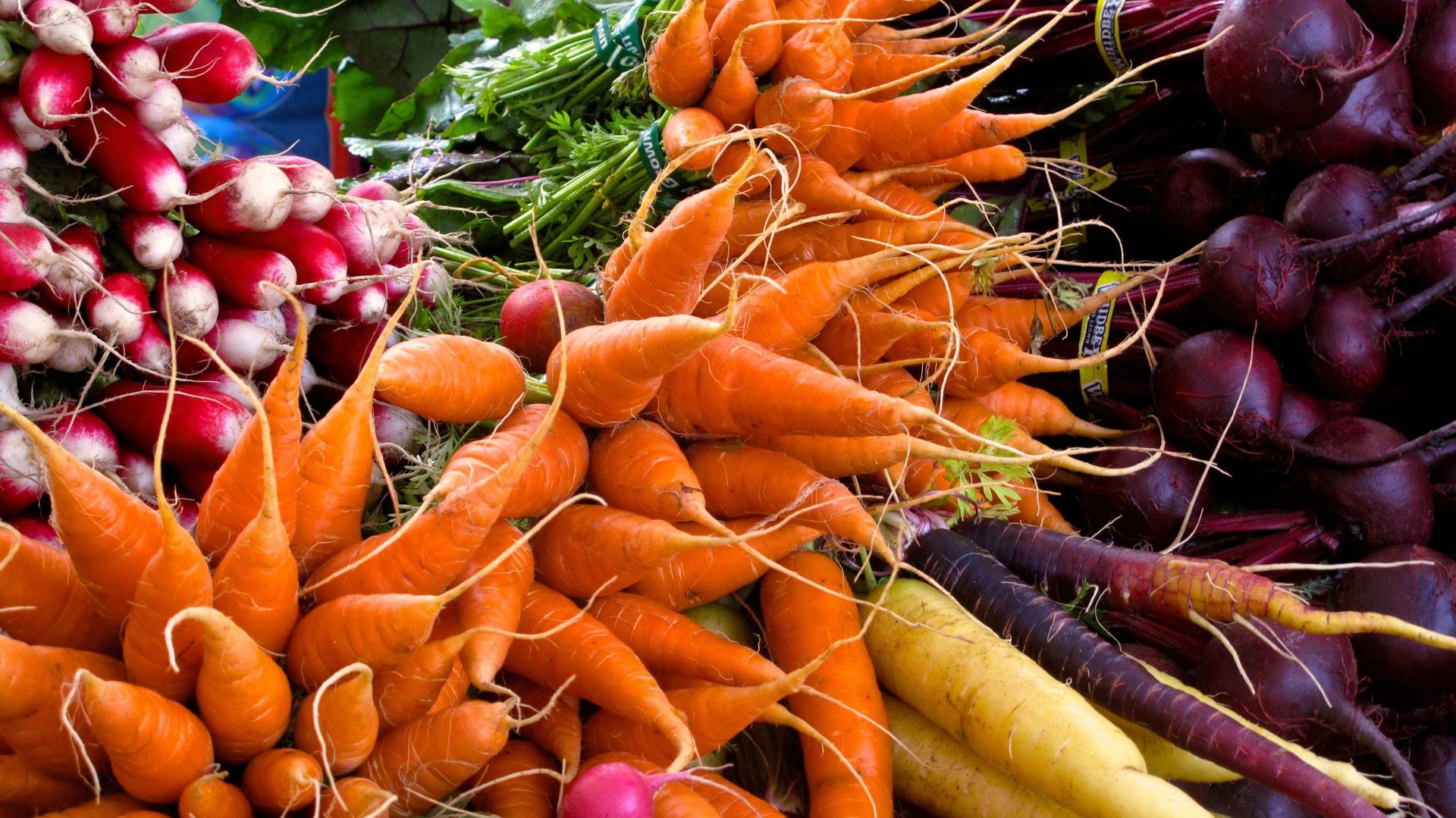The philosophical case for going vegan is about pleasure—not preachiness
“Of course reading and thinking are important but, my God, food is important too.” These are the words of philosopher Iris Murdoch, and I am inclined to agree with her. Food is not just important to our health and our pleasure, but because it helps define the kind of people we are. In this regard, one might say, you are what you eat.


“Of course reading and thinking are important but, my God, food is important too.” These are the words of philosopher Iris Murdoch, and I am inclined to agree with her. Food is not just important to our health and our pleasure, but because it helps define the kind of people we are. In this regard, one might say, you are what you eat.
Our society’s growing interest in veganism is a sign that many people—at least those privileged enough to have a fair amount of choice in their dietary habits—feel driven to ensure that their food aligns with their sense of self. In part, this is because public perceptions of veganism have shifted. The old-fashioned idea is that veganism is an-hedonic lifestyle based on grim restrictions, requiring immense discipline and sacrifice. This attitude is neatly summarized in a recent tweet from the British tabloid journalist Piers Morgan, who, upon learning of people going vegan for the month of January, asked, “What new special kind of Hell is this?”
This stereotype belies actual experiences of becoming vegan. Put simply, becoming vegan can be fun—not only because vegan food can taste good and improve your health, but because making the choice to go vegan involves experimenting with becoming a different kind of person.
The old arguments for veganism tend to tub-thump the moral wrongness of eating animals. The work of the late American philosopher Tom Regan is a good example of such an approach. Regan developed a broadly Kantian position involving not treating others, including non-human animals, as means to our ends. This led him to argue that justice required that non-human animals be treated with respect, so it was morally wrong to eat them.
These kinds of arguments led to a widespread perception of vegans as morally-righteous extremists, which made it easy for the majority of people to avoid considering giving up animal products. Those uninterested in pursuing modern sainthood by building our lives around duties and prohibitions could eat our cheeseburgers in peace.
The new veganism, by contrast, recognizes that care for the self is an important and worthwhile pursuit. And it deems pleasure a central facet of that self-care, emphasizing the pleasures of eating a delicious, colorful array of plant-based foods. Such an orientation is about what you eat, not what you don’t eat. The new veganism does not say “Don’t eat animals,” but rather, “Eat plants.”
Indeed, one facet of becoming vegan may be a stance of openness toward new pleasures. Meat-eaters may extol the delights of the smell of a Sunday roast. So can vegans take in the comforting aroma of a sweet potato and fennel tagine. Instagram is bursting with photos of artisanal vegan ice cream cones and artfully arranged buckwheat waffles, while haute cuisine vegetarian and vegan restaurants like Millennium in Oakland, California, or Terre a Terre in Brighton, England, emphasize inventive dishes like seared chestnut polenta cake with sautéed maitake, oyster, and chanterelle mushrooms. And there are pleasures like discovering gorgeous things like persimmon in your local store, overlooked while you were an omnivore.
The pleasures of veganism also encompass the feel-good benefits of healthy living. From short-term energy boosts to longer-term benefits like a lower risk of heart disease and cancer, becoming vegan invites us to enjoy cultivating a sound relationship with one’s body.
We can also see the choice to become vegan as a transformative moment; a chance to actively engage in the aesthetic construction of the self. Being a vegan means changing into a different kind of person. What’s at stake is a better relation not only to one’s body, but also to one’s ways of thinking, and ways of treating others and the planet.
This is what distinguishes becoming vegan from taking up CrossFit or some other self-improvement practice. Fitness work is part and parcel of a wider trend for aspirational living. There is nothing truly progressive or subversive about it. But in becoming vegan, you become other than the norm. You refuse to conform to the dominant Western eating culture. And so becoming vegan is about celebrating your freedom to choose the kind of person you become.
Veganism, then, is a practice in which one becomes other than what one is. It involves a creative and experimental kind of work on the self. To become vegan is to take pleasure in disrupting environmental degradation; to enjoy the feeling of caring about the conditions of food production; to celebrate eating food that has been ethically produced. Being a vegan can be fun because it feels great to be part of a quest for a kinder, more sustainable world. It feels empowering to take actions toward creating that world, to be one person in a movement that wants to make a difference. Self-care, after all, is not just about treating oneself well, since we all live in the world together. Self-care means exercising choice over how we think, and attending to the steps we take to create the kind of world we want to live in.